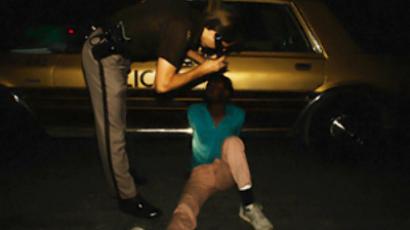International forces in Afghanistan fail to create effective police on ground
While international forces in Afghanistan spend billions to build up a security system there, local police fail to tackle flourishing drug trade and insurgent violence and even foreign training projects don’t help.
On one of the main roads that lead to Kabul, two policemen patrol from a shack on the side. It’s often the route foreign troops and diplomats travel, making it the perfect target for Taliban landmines.
The road connects Bagram airbase with the capital city, and is also used by drug traffickers to get their supplies out. But neither of these officers can read or write; they never went to school. And each has just two months of police training under his belt.
“Our teachers at the police academy were Afghans and foreigners," said one of the police officers, Azmuddin. "They taught us about the constitution of Afghanistan, how to check cars, how to use guns, how to behave with the people. It was helpful because it was practical.”
“We are checking cars because there are kidnappings and smuggling. If we see any suspicious cars, we inform the district office, and then someone from police headquarters will come,” said the other police officer, Mohsien.
There are about 70,000 policemen in Afghanistan. And according to the United Nations and NATO, that figure should double in the coming months, as some $10 billion is poured into the country specifically to train the force. But problems of illiteracy, corruption, drug addiction and poor pay have led many to believe that the program is not working. Also, Afghans are questioning the foreign training they’re receiving. Last November a local policeman turned his gun on five British trainers and shot them dead.
But in the remote town of Qalat in southern Afghanistan, far from the capital of Kabul, law and order is much more difficult to maintain. A local police station was set up with the help of the American forces.
The local prison was only established 4 years ago – with just four cells in which 60 prisoners are kept. American soldiers helped build its walls and train prison guards to better handle their weapons and guard prisoners.
“People do not have the understanding for more complicated projects to sustain them," said Greg Orbino, a senior engineer from US Provincial Reconstruction team. "Something like the prison walls and the guard towers are very easily sustainable for people. An electric power grid where you have to maintain several generators and several hundreds of miles of power lines in an area where people don’t have that training, that’s where the problem lies.”
Colonel Ghulam Farooq, the prison chief, agrees. He complains not only that his men are under qualified, but that he’s also understaffed.
“We definitely need more training, but the problem is that we have only two training centers and both are very far from us, and we therefore cannot send people there,” he said. “Also, they only get six weeks training, and that’s not enough. I have 10 officers, and I really need 38.”
Creating an Afghan National Police force that is able to secure the country is a key component of the international forces’ policy here. But when about 2,000 Afghani police were killed last year and between 2,000 and 3,000 wounded, that force seems dismally inadequate of making any real change.














